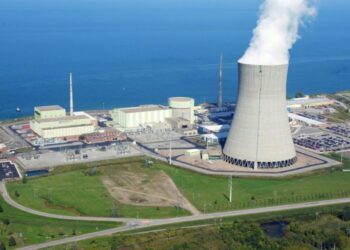The Nigerian Federal Government is set to revitalize its automotive and energy sectors through the establishment of industrial parks focused on local production of components for converting vehicles to compressed natural gas (CNG) power. With this initiative, Nigeria aims to reduce its reliance on imported parts and fuel, creating a foundation for job creation, energy independence, and economic growth.
Engr. Michael Oluwagbemi, CEO of the Presidential Compressed Natural Gas Initiative (PCNGI), recently highlighted the government’s ambitious plan to establish industrial parks for producing CNG kits and related components domestically. Speaking at the Nigeria Auto Journalists Association 2024 workshop, Oluwagbemi, represented by Mr. Olayinka Rufai, noted that several manufacturers have expressed interest in setting up plants to produce CNG conversion kits, cylinders, and other essential parts within Nigeria. The first of these industrial parks is planned for the Ajaokuta Steel Complex, which offers an ideal location to support large-scale manufacturing.
This local production effort is part of the government’s broader goal of converting one million commercial vehicles to CNG over the next three years.
By prioritizing domestic manufacturing, Nigeria seeks to prevent the replacement of fuel imports with imported CNG equipment, thereby driving down foreign exchange demand and bolstering the economy.
Oluwagbemi emphasized that the shift toward CNG aligns with Nigeria’s abundant natural gas resources and presents a sustainable, cost-effective alternative to petrol, offering immediate benefits to the public by reducing fuel costs.
Meanwhile, the National Automotive Design and Development Council (NADDC) is working to ensure the safety and efficiency of CNG-powered vehicles in Nigeria.
Addressing concerns following a recent CNG vehicle explosion in Benin, NADDC Director General Oluwemimo Osanipin (represented by Assistant Director Ikechukwu Okoha) reaffirmed the agency’s commitment to safety by demonstrating CNG’s reliability through its own fleet of converted vehicles.
The NADDC is also collaborating with reputable Original Equipment Manufacturers (OEMs) to ensure that the best conversion technologies are implemented in Nigeria.
To strengthen the industry’s technical capacity, NADDC has developed the National Occupational Standards (NOS) for converting, calibrating, and maintaining CNG vehicles in collaboration with local and international experts.
This framework, validated by industry professionals and approved by the National Board for Technical Education, will guide the training of technicians, ensuring skill development and adherence to international standards.
The NADDC has also been proactive in supporting workforce development and infrastructure for the CNG shift. The Council is setting up Automotive Training Centres (ATCs) across Nigeria’s six geo-political zones to train technicians and serve as CNG conversion hubs.
These centers will support job creation, improve technical skills, and ensure safer and more efficient vehicle maintenance. In addition, the NADDC has coordinated training programmes, such as those conducted by Lanre Shittu Motors, which recently equipped 45 technicians from Ekiti State with modern tools and conversion expertise.
As part of this drive, 30 workshops across Nigeria have already been licensed for CNG conversions, with a focus on local manufacturing of conversion kits and components.
Through the combination of industrial parks, training centers, and safety standards, the Federal Government aims to build a resilient CNG-powered auto industry that not only reduces dependency on imported fuel but also fosters economic self-sufficiency, job creation, and a cleaner environment for all Nigerians.





